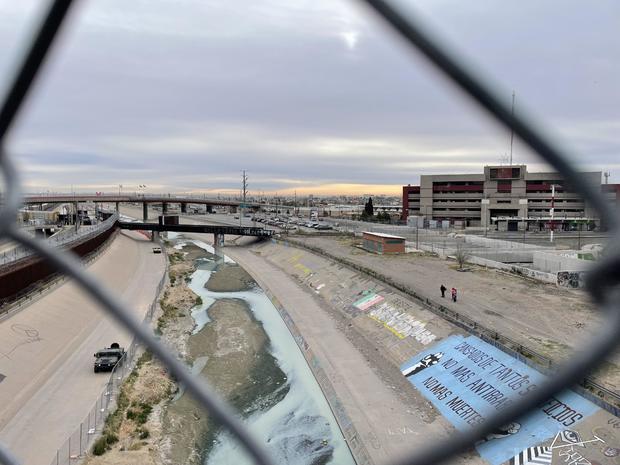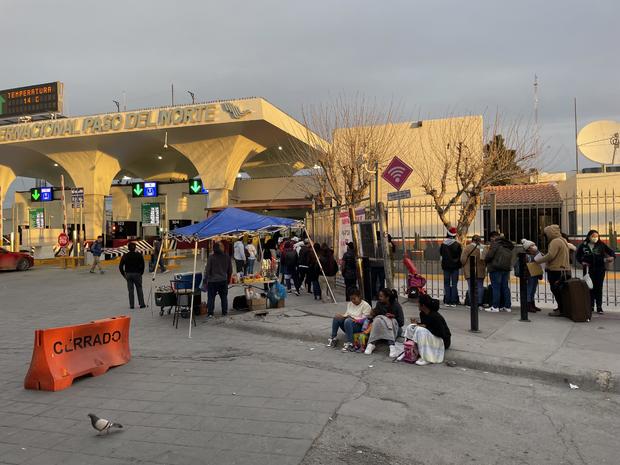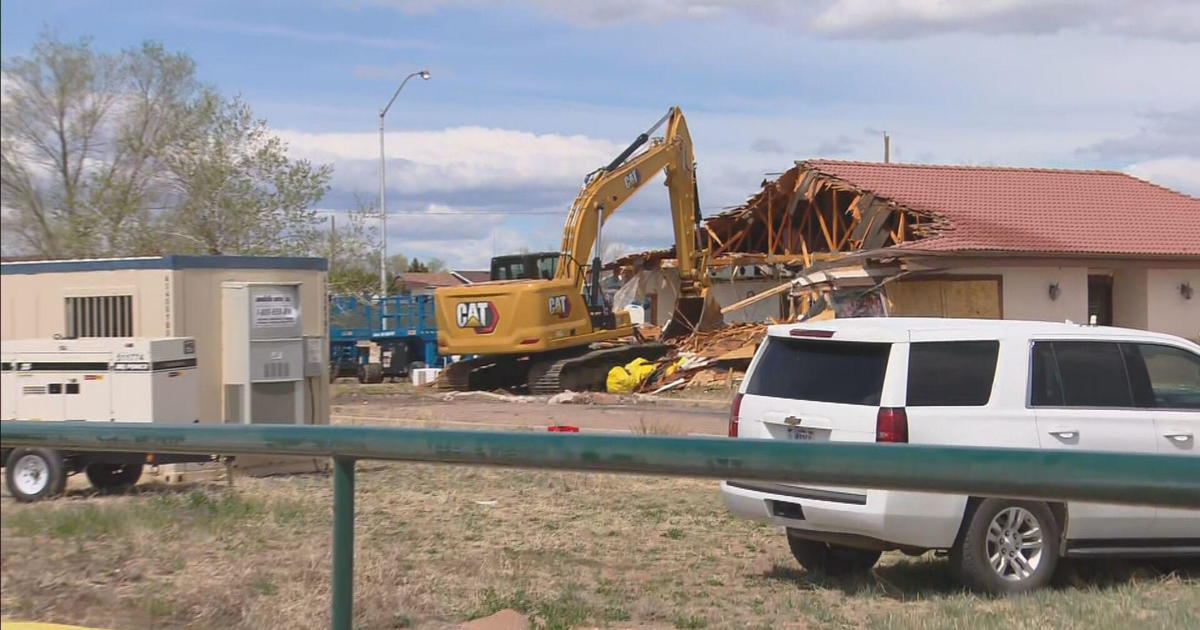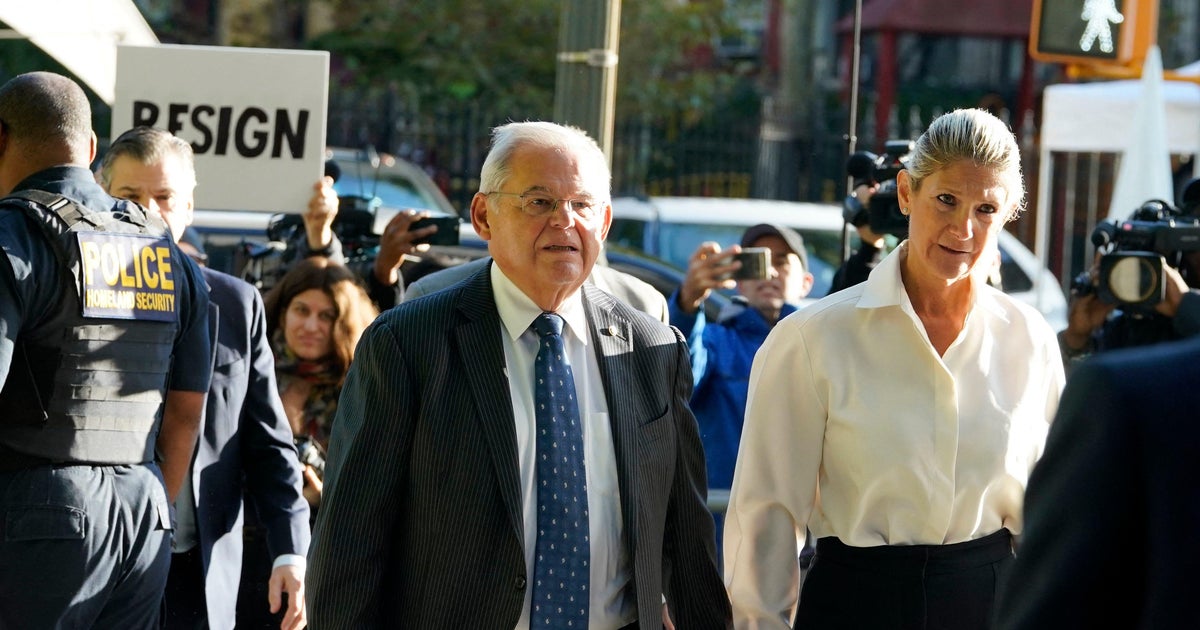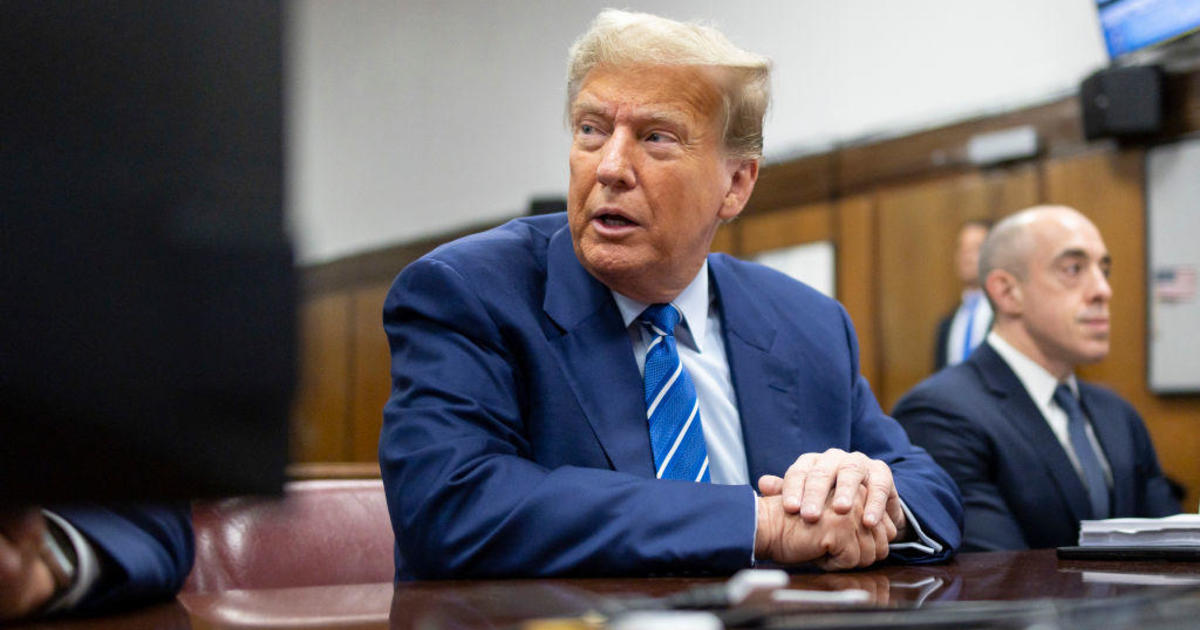Stricter U.S. migration controls keep illegal border crossings at 2-year low — for now
El Paso, Texas — Unlawful crossings along the U.S. southern border in February remained at a two-year low for the second consecutive month, illustrating the dent that stricter policies enacted by President Biden this year have made on the unprecedented migration flows recorded since he took office.
U.S. Border Patrol recorded roughly 130,000 apprehensions of migrants who crossed the southern border illegally in February, virtually the same level as in January, when detected unlawful entries plummeted by 40% from a near-record in December, according to internal federal data obtained by CBS News.
For the first time since Mr. Biden took office, Border Patrol agents did not record a spike in migrant apprehensions in the month of February, when migration flows to the U.S. southern border have typically increased before peaking in the spring.
While migrant apprehensions continue to be at historically high levels and are projected to increase sharply in May, the two-year low is a dramatic change from the situation along the U.S.-Mexico border just two months ago, when a massive spike in unlawful migration strained federal and local resources.
"When new policies are announced, there is typically a little bit of a pause when people try to understand what the policies might mean for them," said Doris Meissner, a senior fellow at the nonpartisan Migration Policy Institute who oversaw the now-defunct Immigration and Naturalization Service in the 1990s. "But this is more than a temporary pause."
As part of his recent migration crackdown, Mr. Biden expanded the scope of a pandemic-related border restriction known as Title 42, making migrants from Cuba, Haiti, Nicaragua and Venezuela eligible to be expelled to Mexico if they enter the U.S. illegally. His administration also plans to replace Title 42, which is set to lapse on May 11, with a sweeping asylum restriction that would allow the government to more quickly deport migrants who fail to seek refuge in other countries on their way to the U.S.
Those stricter rules have been paired with the expansion of a program that allows up to 30,000 migrants with American sponsors to fly to the U.S. legally each month, as well as a mobile app that gives hundreds of asylum-seekers the chance to request entry along official border ports of entry on a daily basis.
In December, Border Patrol recorded 222,000 migrant arrivals, a near-record high. The influx of illegal crossings by migrants from Nicaragua and Cuba posed an unprecedented test for the Texas border city of El Paso, leaving hundreds of migrants sleeping on the city's streets and forcing local officials to convert hotels, a convention center and a middle school into emergency shelters.
But since Mr. Biden unveiled his new migration strategy in January, El Paso has closed the makeshift shelters, and migrants are no longer stranded outside a local church and the city's Greyhound bus station. Incidents of migrants crossing El Paso's busy highways have also largely stopped, city officials said.
"It's going to incentivize legal migration. So as long as they follow the process, they can come in and it's the right way to do it," Mario D'Agostino, the deputy city manager of El Paso, told CBS News, referring to the new federal strategy. "That's what we're seeing right now. That's why we're seeing low numbers."
El Paso's nongovernmental shelters, run by faith groups and nonprofits, are also no longer severely overcrowded. A shelter for up to 85 parents and children near downtown El Paso was only housing three families this week, down from over 140 migrants in December. A nearby gym repurposed as a shelter is now accepting single adults in addition to families, after rejecting them in December due to lack of space.
A stretch of land between the border barriers in El Paso and the steep concrete canal walls beside the Rio Grande is no longer a site where hundreds of migrants line up each day to seek asylum. Instead, the area has been fortified by fencing, reams of razor wire and humvees stationed by the Texas National Guard
In Yuma, Arizona, a small border city that has seen the fourth-highest migrant traffic nationwide over the past year, local officials have also reported a sharp drop in migrant arrivals. Douglas Nicholls, Yuma's mayor, said daily arrivals there have dropped to roughly 400, or a third of the unlawful crossings in December.
"The numbers are more manageable now," Nicholls, a Republican, told CBS News, noting the high levels of migrant crossings near Yuma over the past year have strained local resources and negatively affected the city's businesses and tourism industry.
But Nicholls expressed concern that migration could rise again once Title 42 lifts, saying the federal government should be dispatching more resources and personnel to help border communities. He noted Yuma only has one bus line and no formal systems to feed and house migrants. Federal officials have warned that daily migrant arrivals could spike to 13,000 once Title 42 ends absent a major policy change.
While Mr. Biden's new strategy has so far appeared to reduce the number of illegal crossings, advocates for asylum-seekers said the effort has come at an unacceptable human cost.
Ruben Garcia, who leads the Annunciation House, a network of shelters in El Paso, said migrants expelled by the U.S. are in danger of being victimized by criminal groups in Ciudad Juárez, one of the most violent cities in Mexico.
"How do you justify what's going on among refugees in Mexico? How do you justify that?" Garcia asked. "It is absolutely not acceptable."
Garcia said the recent federal policy changes also run contrary to Mr. Biden's campaign promises to dismantle former President Donald Trump's immigration legacy and manage migration humanely. Instead, Garcia said, Mr. Biden is embracing asylum restrictions like Title 42 and "has become the expeller-in-chief."
The legal migration pathways Mr. Biden has created have also come under fire from Republicans, who say he lacks the authority to admit large groups of migrants outside the visa system, and from progressives, who say the programs are too limited.
The sponsorship program is only open to migrants from Cuba, Haiti, Nicaragua and Venezuela, while the mobile app process to request U.S. entry, known as CBP One, has been criticized by advocates who say it is glitchy and fails to allocate enough spots to meet the high demand among migrants in Mexico.
Biden administration officials have rejected the accusations that their new efforts to manage migration resemble the policies of the Trump administration.
The strategy, Homeland Security Secretary Alejandro Mayorkas said in an appearance last week, is designed to "liberate [migrants] from the clutches of the smuggling organizations that wreak so much death and tragedy" by offering them legal avenues to reach the U.S.
Mayorkas noted that approximately 740 asylum-seekers are being processed along the southern border every day under the CBP One process. Moreover, the sponsorship program has allowed 22,000 Venezuelans, 7,800 Cubans, 5,100 Haitians and 1,600 Nicaraguans to enter the U.S. as of mid-February, DHS statistics show.
In Ciudad Juárez, migrants across the city can be found trying to secure a coveted CBP One appointment. At a shelter in one of the city's poorest neighborhoods, Mexican families who fled violence in the state of Michoacán said they had been trying to get an appointment for weeks and even months to no avail. A group of Venezuelan migrants being fed by faith-based volunteers at the city's cathedral said they got an appointment, but it was scheduled hundreds of miles away on the other side of the border with Texas.
Meanwhile, near the port of entry where dozens of migrants are processed under the CBP One program each morning, three Venezuelan cousins said they had traveled there in hopes of improving their chances of getting an appointment.
One of the cousins, Daniela Moreno, a 19-year-old mother who traversed seven countries and Panama's treacherous Darien jungle to reach Mexico, said she's been trying to get an appointment for two months. The app, she said, often crashes, and the indefinite wait has left her and her 2-year-old daughter stranded in Ciudad Juárez.
"Mexico is very unsafe, especially for women," she said. "I prefer to cross the jungle back and forth than to cross into Mexico."
